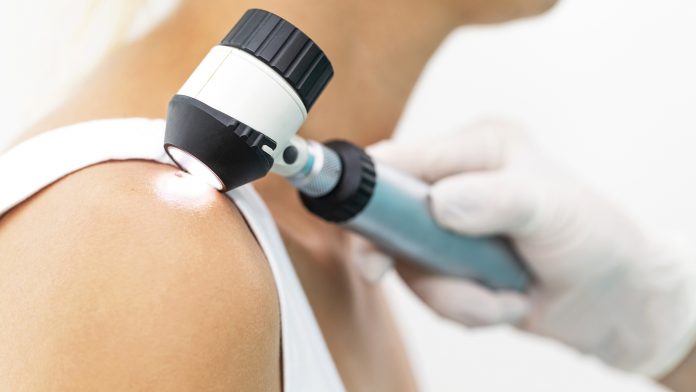
The use of broad-spectrum antibiotics during melanoma treatment may make the disease worse by damaging the gut microbiome, according to new research from Emory University, Atlanta, USA.
It has been found that the use of broad-spectrum antibiotics in mice with malignant melanoma (an aggressive form of skin cancer) can accelerate their metastatic bone growth. This is likely because the drugs deplete the intestinal flora in the mice, damaging the gut microbiome and weakening their immune response.
The gut microbiome is essential to health
These findings underline the importance of the gut microbiome in overall health and suggest that doctors should consider the gastrointestinal effects of broad-spectrum antibiotics more carefully when treating people with cancer.
“Any disease or therapy that harms the gut microbiome could have a negative impact on our health,” said Dr Pal, who presented the report today at the annual meeting of the American Society of Bone and Mineral Research in Austin, Texas.
“In our study, we found that the gut microbiome restrains the progression of melanoma bone lesions in mice by promoting the expansion of intestinal natural-killer (NK) cells and T helper (Th1) cells and enhancing their migration to the tumour site,” Dr Pal said.
“Using oral antibiotics depleted the gut microbiome and reduced the population of intestinal NK cells and Th1 cells. This made the mice more vulnerable for tumour growth. They had a higher melanoma tumour burden than control mice whose gut microbiome was intact.”
The researchers hypothesised that the use of broad-spectrum antibiotics could deplete the gut microbiome of the mice, affecting their intestinal immune cells and disrupting their immune response. This could lead to osteolytic bone metastasis, a complication of malignant melanoma.
The researchers injected B16-F10 melanoma cells in the bones and hearts of mice that had been treated with broad spectrum antibiotics. As the researchers had hypothesised, the antibiotic injections accelerated bone metastatic growth in those mice. No metastatic growth was recorded in the group of control mice who had not received the antibiotics.
The researchers were then able to understand the mechanism for the growth of melanoma. Flow cytometric analysis of bone marrow cells within tumour lesions revealed that gut microbiome depletion prevented the melanoma-induced expansion of intestinal NK and Th1 cells.
Broad-spectrum antibiotics negatively affect other diseases
Migration of NK and Th1 cells was measured, revealing that the broad– spectrum antibiotics decreased the NK and Th1 cells from the gut to the tumour by 800%.
As part of the body’s immune response, the NK and Th1 cells leave the gut. This process is mediated by S1PR5 and S1PR5 receptors. The broad-spectrum antibiotics caused a pharmacological blockade of the cells, preventing the expansion of the NK and Th1 cells in the bone marrow and accelerating bone metastatic growth.
These findings indicate that gut microbiome modifications induced by broad spectrum antibiotics may have negative clinical effects for melanoma and other diseases.
“For example, inflammatory bowel disease, or other gut conditions that create inflammation, can lead to increased Th17 cells, TNF producing cell numbers in the gut, which ultimately has a negative impact on our bone health. Similarly, we have seen that in a murine model of surgical menopause, reduced levels of oestrogen cause bacterial metabolites to pass more easily through the gut barrier and hyperactivate the immune system. As a result, the number of intestinal and bone marrow cytokine producing T cells rises, largely contributing to the development of bone loss,” said Dr Pal.
“We should be very much careful with our gut microbiome, and of the unforeseen adverse consequence of antibiotic regimens. Conversely, probiotics can play a major role to maintain healthy gut microbiome, and better overall health,” said Dr Pal.

























